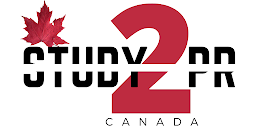What good skills should you learn/acquire before coming to Canada to get a part-time or full-time job?
Canada is a hub of opportunities for international students. But those who are looking to work part-time cannot be sure that they will find the right work and get paid to satisfy all the needs to survive in Canada.
What skills do you learn? This will depend on the type of job and the company you are applying for. It will determine the skills and experience required to find a new position. We can still look at the most in-demand skills in Canada. The Canadian job market was a little volatile in January 2021. The second wave of COVID 19 has hit a hard round of lockdowns resulting in job loss. There is still hope for the post-pandemic situation, as some sectors are expanding, and job postings are trending upward towards pre-crisis levels. With this in mind, which are the top skills employers in Canada are looking for?
When we talk about skills, it gets divided into two types: Hard Skills and Soft Skills. In this article, we mainly talk about the soft skills needed to be employed by international students.
What skills do employers in Canada seek?
If you look at job recruiting portals or read their newsletters, you will see some of the most in-demand skills. Other experts in this field also highlight some essential skills Canadian employers are looking for. These sources show that the job market is in dire need of both talent and personality.
Let us take a look at some of the most in-demand skills in Canada right now, and select some courses and learning opportunities to help you improve them.
What are the difficulties international students face in Canada?
What to choose University or College in Canada?
First and Most Important:
Attitude
This is something that can be improved before you apply for immigration. Your most important success factor is your attitude. Open-mindedness, curiosity and a hunger to learn are all key factors to your success. You can stay motivated even if you are not able to find a job in your field. If you believe it will enhance your career, don't be afraid to learn a new skill. Ask for help from others, but be prepared to put in the effort yourself. Tell your potential employer what you think. Do not get affected by EGO. Do not depress other immigrants by your short-term failure. Learning from others' success will help you achieve your goals.
Respect Workplace Culture
Although it may not be able to help you find work, it will help you retain it. Learn about the differences between working in Canada. Negotiating with your supervisor, working with colleagues, and resolving conflict are just some of the many responsibilities.
Language
Learn as much English and French as possible. As you might know, certain parts of Canada use French as their primary language. Confidence is key. If you need help, talk to your friends or colleagues in English/French. Talk to people and overcome your fear of public speaking. You can practice your 30-second introductions and sign up for pre-arrival settlement agencies that will teach you how to communicate effectively.
Improve Presentation Skills
Newcomers from knowledge-centric cultures face this problem the most. It is important to communicate your knowledge effectively while in Canada. Canadians are more adept at 'Show and Tell' so make sure you present your knowledge in the correct manner. Now is the time to open MS PowerPoint and review your presentation skills. You can also learn from YouTube how to create effective presentations. Don't forget that presentation is not just a form of 'beautification.' Get MS Excel and make friends with pivot tables and formulas while you're at it. It may not be necessary, but it can come in handy at times.
Learn how to network
Networking effectively can help you gain insights, tricks and tips as well as make important contacts both professionally and socially. Ask your contacts for information about networking events in your specific niche. or ask them how to meet more people in the relative field.
Also, remember that not all jobs in Canada are not advertised publicly. This is the so-called hidden employment market. Networking is extremely essential in order to find jobs in Canada. To be able to be considered for a job, it is important to build your reputation in your industry.
Invite all the local contacts that you are looking for work with.
Volunteering is a potential way to build a network and get Canadian work experience. Get as many connections as possible on LinkedIn, join webinars and online groups to introduce yourself.
Adaptability
The last twelve months have shown us that adaptability and flexibility are key to coping with change. Employers can benefit from those who are able to show resilience, dependability, and other leadership skills in uncertain times.
Which are the high-paying part-time jobs in Canada for international students?
Which intake is best for you to study in Canada? - Everything you need to know
Communication
Communication is high on the list. Interpersonal skills are essential, whether you work with people face to face or remotely. These skills allow you to communicate effectively, share ideas and appreciate others' points of view.
Invest in some good Communication courses. It covers many topics in this area. It will help you to understand your communication style and whether it aligns with your goals.
Problem-solving Ability and Critical Thinking
Other skills that are required to solve problems include creativity and decision-making. Many job opportunities are available to those who can solve problems in the workplace.
There are many courses that teach problem-solving skills, including one on selecting the right problem to solve. You can do these courses online and they will certainly make an impact on your resume.
Confidence
It is difficult for anyone to move to a different country. It can be a daunting task to hunt for work in Canada if you don't have a good network. But, you can do it!
It is important to believe in yourself throughout the process. Try watching some motivational videos or speaking to random strangers. Talking to as many people as possible will boost your confidence.
Teamwork
In every field, you will have to collaborate with others at times. Employers in all industries value the ability to work in a team and collaborate well. This is especially important in these current times.
You need not be a good leader but a good listener while working in a team. This will help you in the long run.
BONUS POINTS:-
Above what you read are the soft skills that you should bring with you to Canada while coming to Canada. Those will surely helo you build your network, career and finish your studies successfully.
Now I would like to give some advice on the same subject from my personal experience but with respect to hard skills.
Before coming to Canada learn some software bases skills, if you are coming to pursue some computer-based skills like computer engineering or any IT field then you are already with technology so you don't need to worry about your job.
If you are coming to Canada to study other engineering fields like Civil, Mechanical, Electrical, Environment, or any other which contains software bases jobs. Try to learn them before coming to Canada.
Engineers who know the software very well get jobs earlier as compared to those who don't know the software. In Canada Engineering job you won't get that easily because they are paying a bunch of money to engineers so they expect very much in return. Students can't offer them that much initially, at least not as fresher. So, initially, you will get jobs like Supervisor, Quality or technician on bases or your degree of field.
At this time if you know some software in your field that will really boost your recruiting process and you will get a nice job.





0 Comments